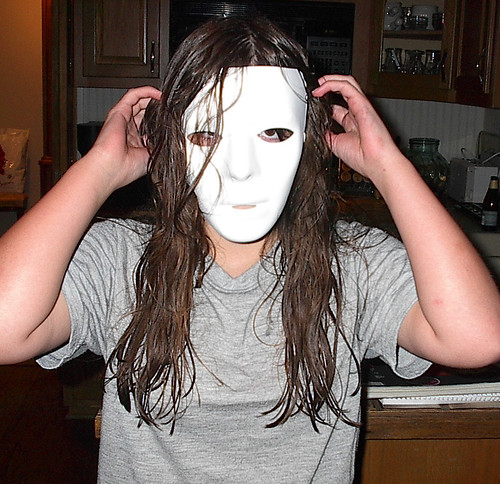Some books on film become so monumental in the movie industry, it's easy to forget that once upon a time, the story existed only on a printed page. The Shining is so iconic that Jack Nicholson is still famous for it 30 years later, and it's still one of the most frightening films ever made. But as a novel, Stephen King's famous book tells a very different tale.
The Book
The Shining is one of Stephen King's earliest novels, and one of his most beloved. The book was a turning point in his career, solidifying him as a top-notch horror author -- a reputation he still holds today. The famous film version of the book focuses on Jack Torrance, but the novel is more oriented on his young son, Danny, who has an unusual talent.
Danny is the only child for either of his parents, who are trapped in a bad marriage. He's often haunted by the dark thoughts he senses swirling in his father's head, thoughts of suicide and divorce. Jack Torrance is an aspirin addict and a drinker with a bad temper. He broke Danny's arm in a drunken rage, an event that brought Jack back to sobriety -- though not soon enough to save his prestigious prep school job. Out of work and struggling to make good on his responsibilities, Jack accepts a job at a Colorado establishment named the Overlook Hotel working as a winter caretaker.
The long winter will give him time to work on his play, his pet project, and spend more time with his wife and son. In the book, Danny is 5 years old and incredibly gifted, speaking and thinking like a boy much older and wiser. Danny meets the hotel chef Dick Hallorann soon after their arrival a the Overlook, and they engage in a secret mental conversation.
Soon, Danny becomes haunted by frightening images and ghosts inside the Overlook. The longer he spends in the hotel, the more dangerous it becomes; the building is feeding off of his abilities. It begins to use Jack to get to Danny, slowly driving him into madness. Jack finds the hotel bar miraculously stocked with liquor after a fight with his wife Wendy and falls off the wagon. The hotel begins to tell him to kill them both
Jack and Wendy have a vicious fight after she learns that he's disabled their transportation and communication. He beats her savagely with a mallet and she delivers a mortal stab to him with a butcher knife. She locks herself in a bathroom, and Jack tries to smash the door open with the mallet before he simply unlocks it. By this time, Dick Hallorann has heard Danny's mental call for help and makes his way back to the hotel. But Jack finds Dick first and brutally attacks him before he goes after Danny.
Jack and Wendy have a vicious fight after she learns that he's disabled their transportation and communication. He beats her savagely with a mallet and she delivers a mortal stab to him with a butcher knife. She locks herself in a bathroom, and Jack tries to smash the door open with the mallet before he simply unlocks it. By this time, Dick Hallorann has heard Danny's mental call for help and makes his way back to the hotel. But Jack finds Dick first and brutally attacks him before he goes after Danny.
Jack beats his own face in, so Danny won't recognize him, but the trick doesn't work because the kid can read minds. Danny convinces Jack to go look after the hotel's boiler system. Wendy and Danny find each other, then Dick, and leave the hotel together. Jack is left alone in the basement with the boiler, which explodes. The Overlook, and Jack, are both destroyed. Danny and Wendy end up in (where else?) Maine with Dick Hallorann.
The Film
The film version of The Shining was released only three years after the book hit the shelves. The players and the setting are all the same in the film: Jack, Wendy and Danny are still a family on the outs and still isolated at the eerie Overlook.
This time, the story is more focused on Jack and his descent into madness. Jack falls off the wagon, just like he does in the book, and begins to see the ghosts that populate the hotel. In the film, Hallorann begins to sense what's going on and starts to make his way to the hotel all on his own. Danny begins to freak out visibly, screaming out "redrum" and talking about himself as someone named "Tony."
Wendy discovers that the play Jack has been working on is little more than gibberish, something which does not happen in the book. In the book, Wendy reads Jack's play after he's already dead and it's not altogether bad. She ends up attacking Jack with a bat and locking him in a pantry, from which he is freed by the ghost of the hotel's former caretaker.
Jack goes after his family, breaking through the door with an axe in the movie's most famous scene -- a scene which happens rather differently in the book. In the film, Jack kills Hallorann when he arrives and begins chasing his wife and son around the hotel. Wendy and Danny escape on a snowmobile, leaving Jack to freeze to death in the hotel's hedge maze. The hotel is never destroyed, and its ghost-riddled presence remains intact...with Jack Torrance now happily among them.
What Got Adapted?
There are so many little differences between the book and movie version of The Shining, I could drive myself crazy trying to list them all. Some big changes were made, some of which seem pretty inexplicable. In the movie, Tony is inside of Danny -- an extension of himself, perhaps. In the novel, Tony exists outside of Danny, and Danny can actually see him.
It's Danny, not Wendy, who locks Jack up in the book. Danny's character is greatly changed in the film adaptation of the book. In the novel, he's a very precocious 5-year-old child with an extensive vocabulary. On film, he's 7 and fairly normal -- except for the psychic thing, of course. But in the film, his psychic abilities are toned down somewhat. Danny can actually read minds and can find out whatever his parents are thinking when he wants too.
The hedge maze is added for the movie. Instead, there's a topiary garden full of animals that end up coming alive and terrorizing Jack. By the way, Jack doesn't ever use an ax in the book.
The book reveals who Tony actually is. Tony is a very important character in the book, and he's changed thoroughly (and in my opinion, badly) for the film. The finger-talking nonsense is fabricated for film as well, and frankly makes light of Tony's true power and intentions. I've never been one to defend Stephen King (that's right, I'll say it: I'm not a fan), but I do think he deserved a bit better. However, at the end of the day, the film version of The Shining is iconic, and terrifying, and it gives us an incredibly fine performance from Jack Nicholson. Kubrick got a lot of stuff wrong, and many of the changes were just silly (not to mention, I actually root for Jack to kill Wendy in the movie because she's tortuously annoying), but tell me that The Shining is on cable and I'm going to flip to that channel anyway.































